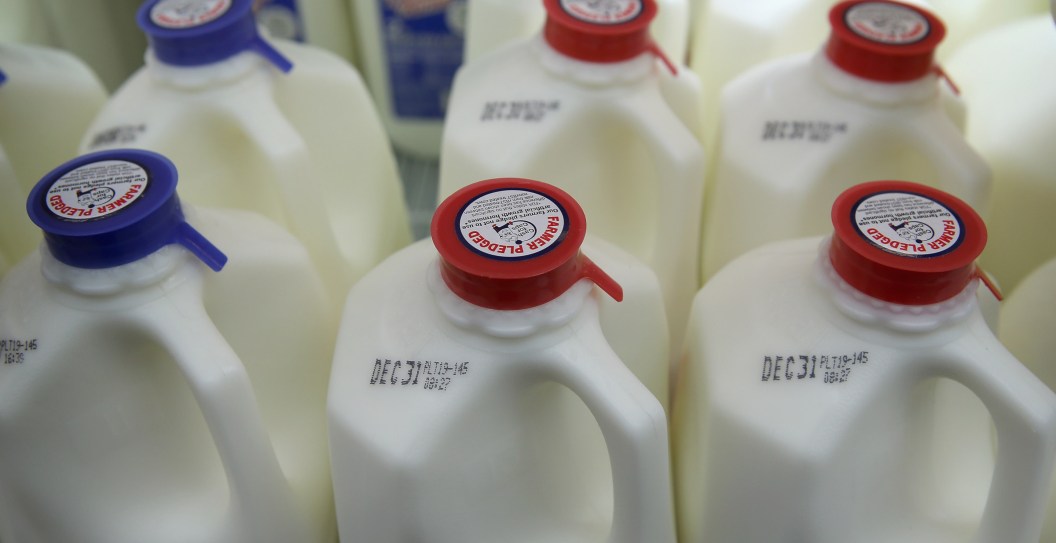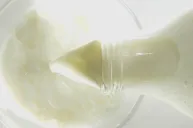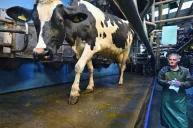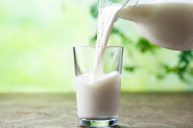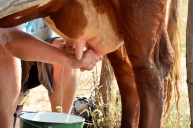The FDA recently confirmed that it found fragments of the H5N1 avian influenza, also known as the bird flu, in milk on store shelves. Is the milk still safe to drink?
Videos by Wide Open Country
The organization said it believes these particles to be remnants of the virus destroyed by pasteurization. The organization speculates that it doesn't believe the particles could infect drinkers with the virus. However, it did say that it was conducting further testing to be sure. "To date, we have seen nothing that would change our assessment that the commercial milk supply is safe. Results from multiple studies will be made available in the next few days to weeks," the agency said.
However, Dr. Eric Topol, founder of the Scripps Research Translational Institute, told CNN the findings proves the virus is more widespread than initially believed. The doctor also pointed out that the FDA hasn't conclusively ruled that milk is safe to drink. "The dissemination to cows is far greater than we have been led to believe," Topol said. "The FDA assurance that the dairy supply is safe is nice, but it's not based on extensive assessment yet, which they acknowledge, and won't engender trust and confidence because it comes in the wake of USDA mishandling."
However, virologist David O'Connor, who works at the University of Wisconsin-Madison, believes that the milk should pose little risk to consumers. "The risk of getting infected from milk that has viral fragments in it should be nil," he explained. "The genetic material can't replicate on its own."
Is Milk Safe To Drink After Bird Flu Detected?
The FDA didn't confirm how many samples tested positive. A larger concern is what impact the virus could have on the nation's supply of cattle. If it's present in milk on store shelves, then it's a larger problem then many first thought. "The problem in dairy cows might be much bigger than we know," O'Connor said. "That would be the concern -- not that the milk itself would be a risk."
Likewise, the FDA doesn't know the full effects of pasteurization on the virus. The process typically kills germs and other viruses.
FDA officials noted they are waiting on results from experiments that will determine whether the milk samples contain active virus.
Most of the milk produced on U.S. farms is pasteurized, a process that typically kills germs with heat. Pasteurization should also inactivate flu viruses, which are known to be fragile and heat-sensitive, experts added. Experts urge consumers to ramin calm.
"With a virus like this, I would have to believe even if you had the highest levels of virus activity you could ever imagine in the actual milk from the udder of an infected cow, it would be diluted millions of times over going into pasteurization," Michael Osterholm, an infectious disease expert at the University of Minnesota, told the Times.
